On the threshold of the Armenian Genocide Centennial, Mediamax continues a series of interviews with the intellectuals of Armenia and the Diaspora. It is an attempt to collect opinions as to whether the Armenian Genocide Centennial will serve a certain “New Beginning” for Armenians or not.
Our today’s interlocutor is journalist Mark Grigoryan.
-You lived most of your life in Armenia but spent around ten years in London. You have been to many Armenian communities and have often visited Istanbul. What differences between Armenia and Diaspora do not allow us to come to terms on critical issues?
- To tell the truth, I don’t know what “critical issues” mean. If we are talking about the policy conducted by Armenia, I believe it’s natural that we are not coming to terms. People living in Armenia feel that policy on their own back. It’s hard to imagine a reality in which, say, Armenians of the U.S. or France share the same perceptions and approaches.
- Should we aspire to have a “common denominator?” Would it not be better to have several clearly formed views and attempt to build bridges between them?
- Want it or not, we will have varying views. It is dictated by human nature. There are other important factors affecting the perception of the Genocide as well. For example, roughly 90% of American Armenians are descendants of Armenian Genocide survivors. Their number is high in Armenia as well but they will hardly make 90%.
During the USSR era, until 1965 when it was forbidden to speak about Genocide in Armenia, this issue was highly politicized in the Diaspora. Thus, Armenian parties were trying to present the issue as theirs – Armenian Revolutionary Federation (ARF) it its way, Armenian Democratic Liberal (ADL) Party and Social Democrat Hunchakian Party (SDHP) - in theirs. And attempts by various groups to monopolize the Genocide issue is one of the outcomes of this issue’s politicization.
- If we put aside the sensory perception, have we framed what we will do in case of the international recognition of the Armenian Genocide? After all, what claims do we have?
- For some, the recognition means acknowledgement of their family pain and restoration of the dignity of their victims. For some, seeking vengeance is the first and foremost goal, and there are people who want to regain the property they lost.
But let’s assume Erdogan says the following on April 24: “We admit it was Genocide and 1.5 million innocent Armenians suffered. We bow before their memory.”
I am sure that most of Armenians are not ready to accept it. Many of them are not ready for Turkey’s recognition of the Armenian Genocide. There are even people who are not ready to accept the fact that 80 thousand Armenians reside in Turkey whose views should be respected and whose lives should be taken care of.
We are not ready to admit that the political recognition of the Armenian Genocide should be interlinked with other acknowledgements as well. Over 20 countries have recognized the Armenian Genocide. Many people around the world already know that if you are an Armenian then you represent a nation that has gone through Genocide. The reality has changed but we are yet not prepared for it. We must understand what we will be doing on April 25.
-Do you think the Centenary might serve a new beginning to ponder over those issues?
-I would like it to become a beginning for such a change and for us to discuss in our society – in Armenia and in the Diaspora – and to try to understand where we are standing now and where we should head to. Let various scenarios be discussed but what matters is not to lag behind the reality.
- Along with a number of other Armenian intellectuals, you came together in Lisbon in October 2014 on the initiative of Calouste Gulbenkian Foundation to discuss vision for Armenia in a century. Is it possible to understand through such discussions where we are heading to?
- This meeting clearly pointed at the fact that the issues of Armenians living in various countries greatly vary. We cannot put the issues of Russian Armenians on par with, say, Argentine Armenians.
Of course, there are also common problems, such as the issue of identity. We need to understand how Armenian identity needs to be shaped in the changing world. At the same time, for example, the Russian Armenians face political problems that absolutely do not raise interest among the Argentine Armenians.
Recognition of the Armenian Genocide is not the only issue of Armenians. There are also other issues that should be discussed and brought up.
- Can you pick out those identity elements, which are important for all Armenians? Language, including the preservation of the Western Armenian, is probably the first and foremost element.
- Western Armenian is one of our greatest treasures. It’s a language in which millions of people speak and think and there is also beautiful literature in it.
Of course, it would be naïve to think that the Armenian community in Russia should have its input in the preservation of the Western Armenian from this day on, but it should realize the importance of taking common steps.
Today there are more Armenian schools and churches in Istanbul than in Tbilisi, despite the differences in our ties with Georgia and Turkey. One of the reasons for it is that the life of Armenians of Constantinople has a form of communal organization. Classical Armenian communities center on churches and schools. Such a community could not be existing in Tbilisi as such a life was deemed to be anti-Soviet in the USSR. I believe preservation and modernization of community institutions is one of the issues we should discuss and resolve through our joint efforts.
I remember it quite well when my children were learning “Little Lake” poem by Petros Duryan written in beautiful Western Armenian. Today it’s not comprehensible for children. If we are sure that this poem and literary compositions written in Western Armenian are really important for our education and the national character of our culture we should teach our children Western Armenian for them to understand what they are learning and not just simply learn by heart without fully comprehending the idea. We should realize what is more important for us.
- Every year we expect the U.S President to utter the word “genocide”. Do you think it holds us back from other useful initiatives, such as hiring best solicitors who would analyze the addresses of U.S. Presidents delivered over the past 10-15 years and who would then state that the message they contain is precisely what is defined in the UN Convention?
- I think we shouldn’t have got disappointed with Obama the first time he used the term “Medz Yeghern” and claim that he lied to everyone not uttering the word “genocide.” On the contrary, we should have said “look, Obama took a step forward and recognized the Armenian Genocide de facto, at that, he did it in Armenian.” But we let this opportunity slip through our fingers.
We should understand the difference between the political and legal recognition of the Armenian Genocide. When rejoicing at learning that one more country has recognized the Armenian Genocide we tend not to see that it is often done as a weapon to influence Turkey. We have handed that “weapon” to them. It’s a political weapon, while there are legal, moral and historic weapons that we should twist in our favor.
I would also like to recall that Hrant Dink used to say that it does not matter for him whether that word will be uttered or not, what matters is that Turkey acknowledges those victims and admits its guilt to those people.
Ara Tadevosyan talked to Mark Grigoryan
Also read:
Ralph Yirikian’s interview
Avetik Chalabyan’s interview
Ruben Vardanyan’s interview
Razmik Panossian’s interview
Gerard Libaridian’s interview














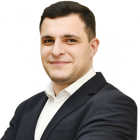

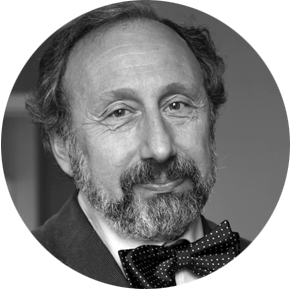

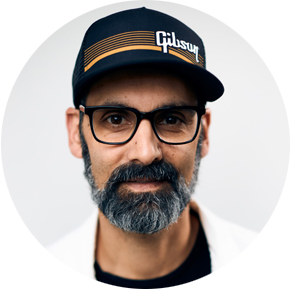
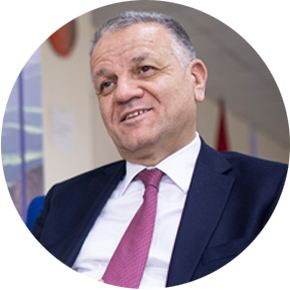
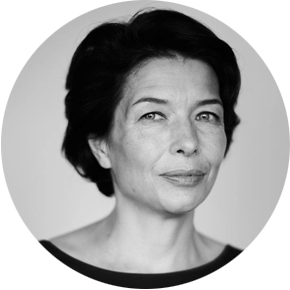





Comments
Dear visitors, You can place your opinion on the material using your Facebook account. Please, be polite and follow our simple rules: you are not allowed to make off - topic comments, place advertisements, use abusive and filthy language. The editorial staff reserves the right to moderate and delete comments in case of breach of the rules.